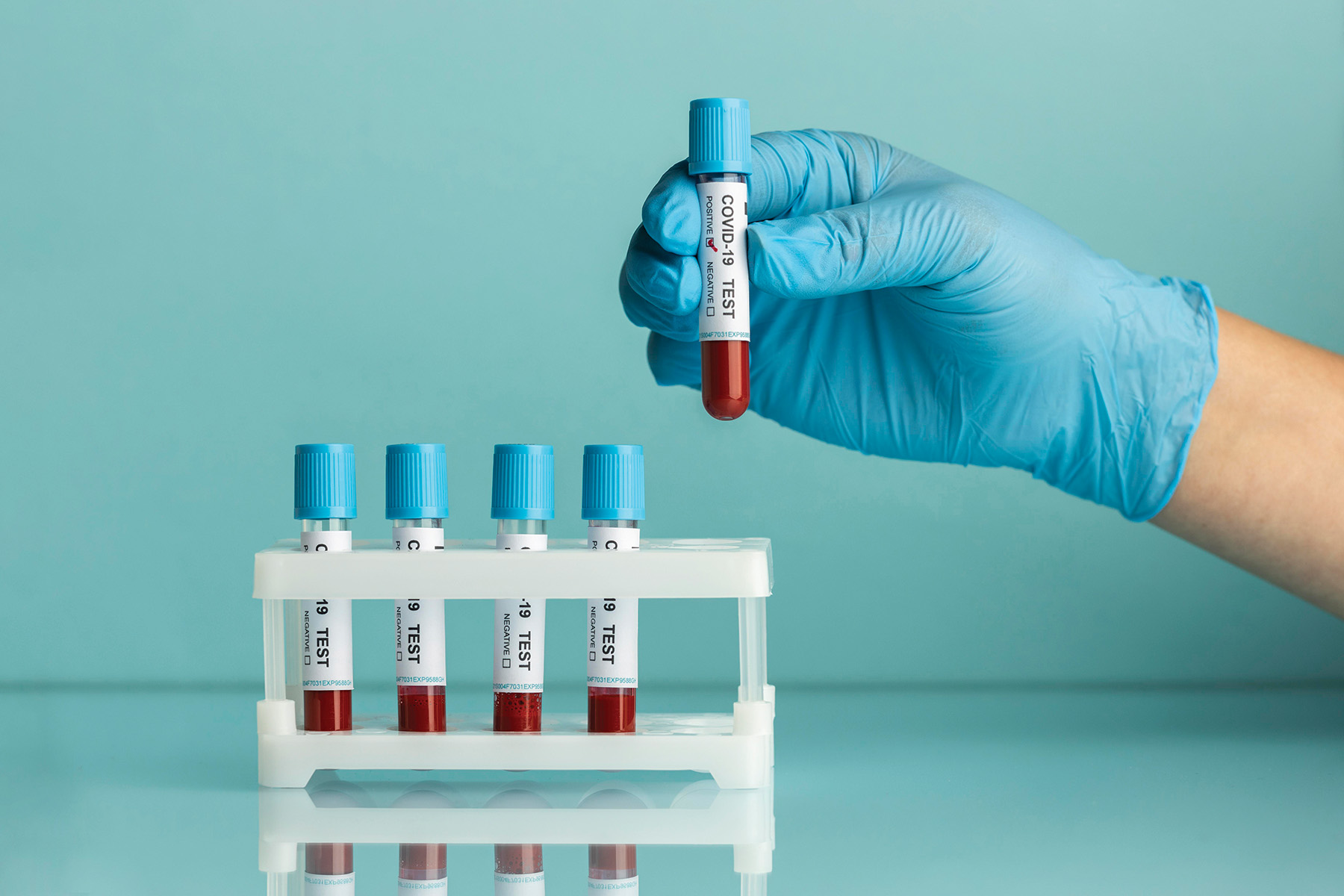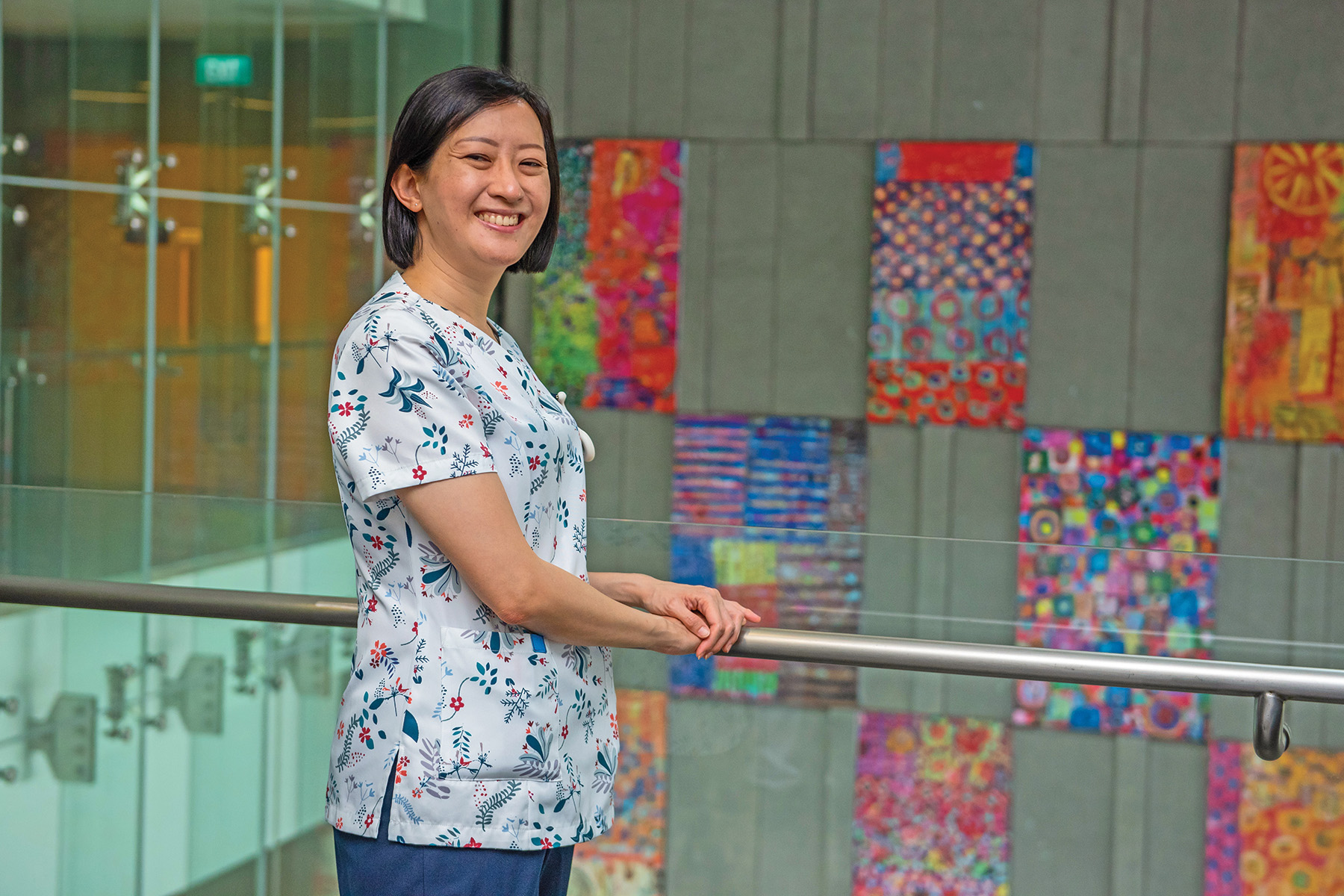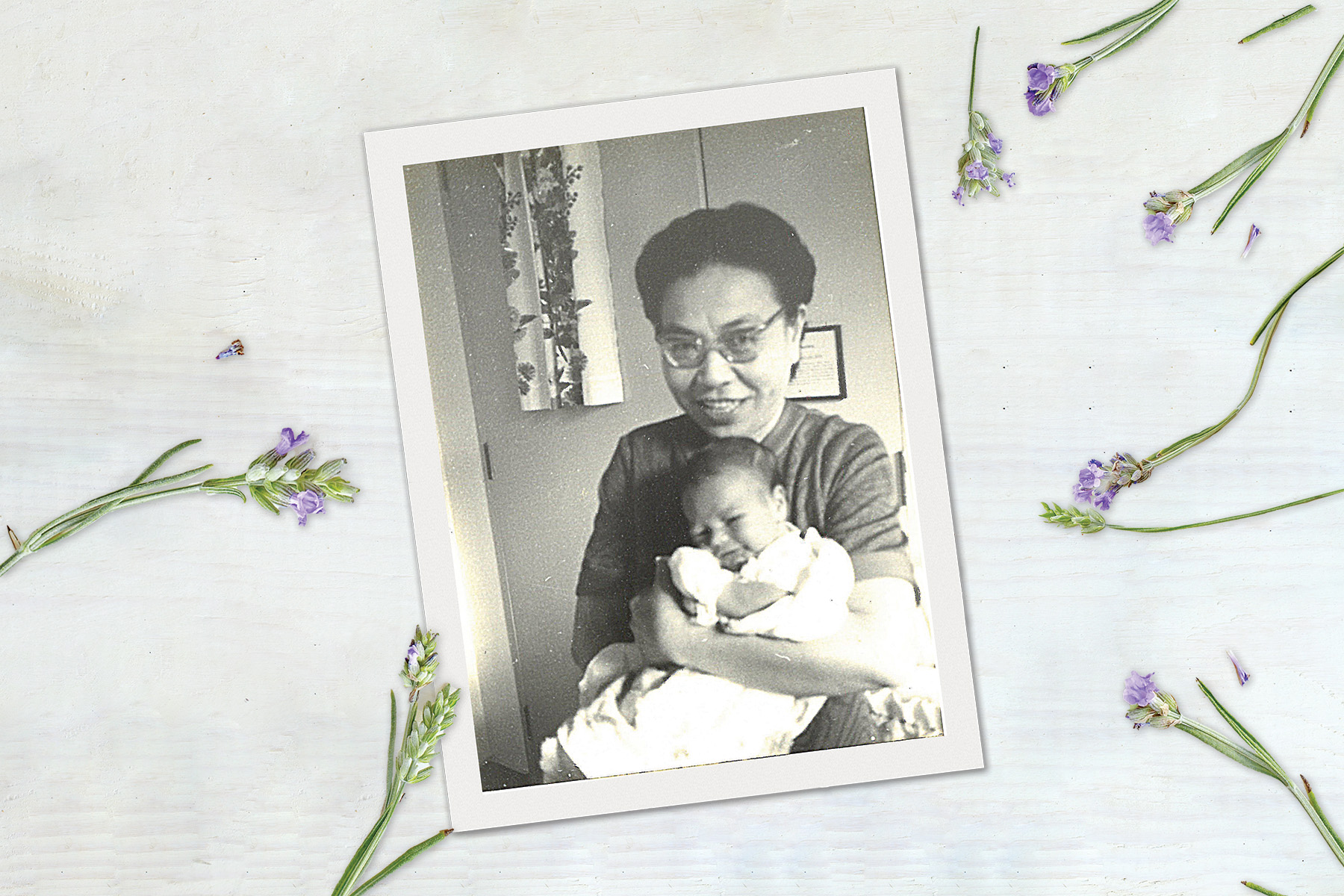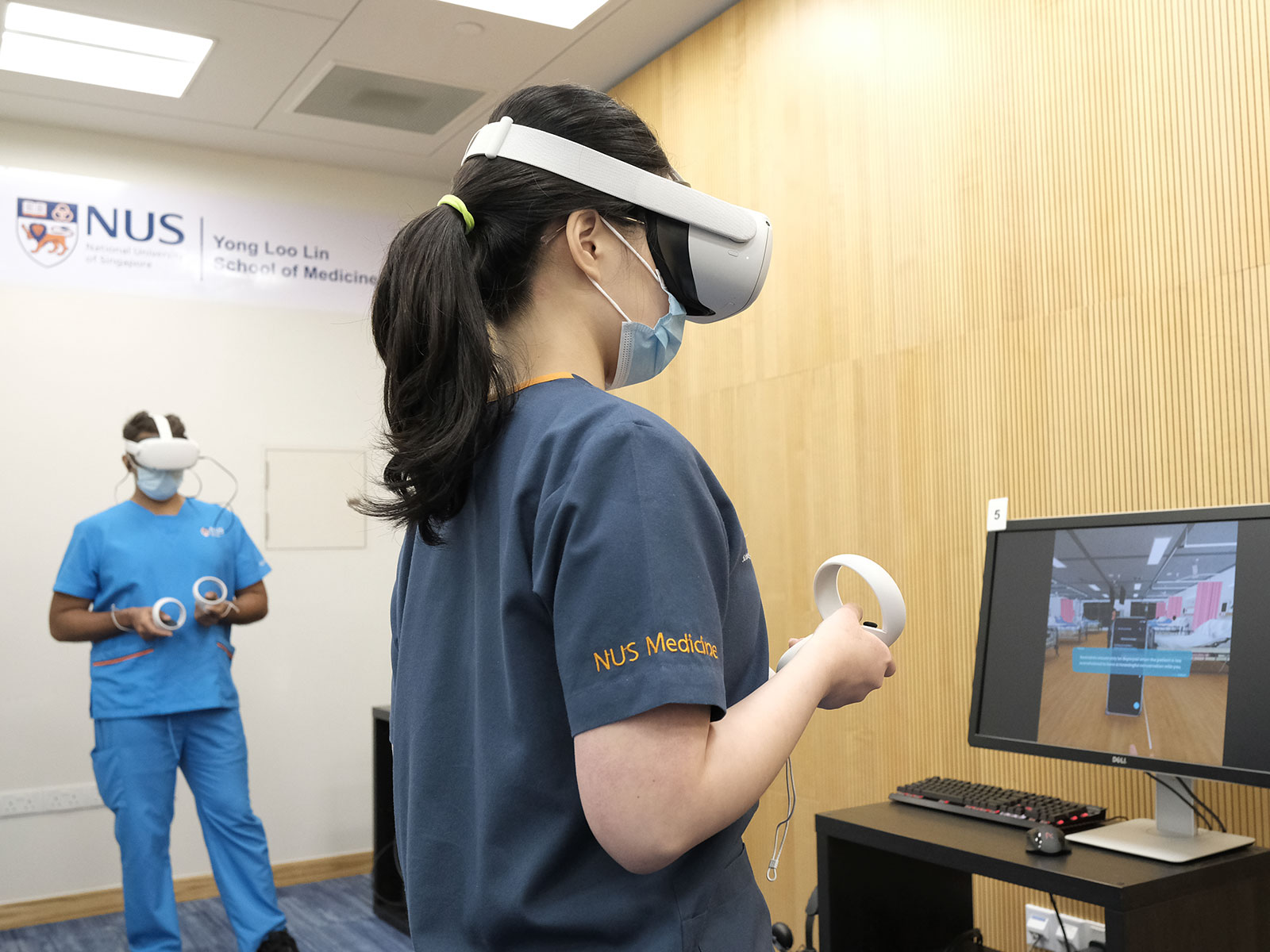
Issue 43 / August 2022
Ethically Speaking
Professional Oversight of Emergency-use Interventions and Monitoring Systems (POEIMS): Ethical Guidance from Singapore

By Assistant Professor Tamra Lysaght, Centre for Biomedical Ethics; Assistant Professor Gerald Owen Schaefer, Centre for Biomedical Ethics; Assistant Professor Teck Chuan Voo, Centre for Biomedical Ethics; Associate Professor Hwee Lin Wee, Saw Swee Hock School of Public Health; Assistant Professor Roy Joseph Centre for Biomedical Ethics and Department of Paediatrics, National University Hospital
Background
Throughout the 2020 COVID-19 pandemic, reports about the provision of unproven and experimental interventions outside clinical trials were common. Such reports were especially prevalent in the early stages of the pandemic when no safe and effective treatments were available for COVID-19. Examples included experimental interventions being investigated in clinical trials, such as Remdevisir before it received an emergency authorisation, market approved medications being prescribed ‘off-label’ (e.g. hydroxychloroquine) as well as immunotherapy products (e.g. interleukin inhibitors and convalescent plasma) and highly experimental stem cell-based products being provided as an ‘innovative’ therapy. While the default position rightly restricted the use of these interventions to clinical trials, it was recognised that there would be situations where some patients would be unable to gain access to them – either because trials were not being conducted locally or, if they were, an individual patient may not meet the eligibility criteria or may not wish to participate.
In many cases, these practices were likely motivated by physicians who want to save lives and relieve the suffering of their patients. However, they were also controversial because the interventions lacked evidence of safety and efficacy for treating COVID-19 and, in some cases, deprived non-COVID-19 patients of (proven) drugs for treating their conditions (e.g. hydroxychloroquine for treating lupus). Critics were also concerned that widespread, uncontrolled access to unproven interventions outside of research may derail or prolong ongoing clinical trials by diverting limited resources. It may also undermine initiation of and recruitment for new trials, as well as consent and trust in research (National Academies of Sciences Engineering and Medicine 2017).
Some practitioners invoked the MEURI (Monitored Emergency Use of Unregistered and Investigational Interventions) framework of the World Health Organization (WHO) as justification for providing unproven interventions. MEURI is an ethical framework for developing a protocol to monitor the use of unproven medical interventions outside of research for therapeutic or preventive use during a public health emergency (Mastroleo, Smith, and The WHO MEURI Working Group 2020). MEURI was developed in response to the 2014-16 Ebola epidemic in West Africa, and was applied in infectious disease emergencies (WHO 2016) prior to COVID-19.
Critics were also concerned that widespread, uncontrolled access to unproven interventions outside of research may derail or prolong ongoing clinical trials by diverting limited resources. It may also undermine initiation of and recruitment for new trials, as well as consent and trust in research.
During the COVID-19 pandemic, the Pan American Health Organization (PAHO 2020) issued a document clarifying MEURI by categorising its requirements into features of justification; ethical and regulatory oversight; consent process; and contribution to the generation of evidence or knowledge. Notably, PAHO emphasises that while MEURI share common features of observational research, it should be applied only under exceptional circumstances i.e. access to unproven interventions outside clinical trials during an emergency situation should be provided only when clinical studies are unavailable or infeasible to initiate because of reasons such as an overwhelmed health system, lack of research capability or resources, insufficient patient numbers and so forth. Nevertheless, PAHO (2020) mandates that MEURI protocols must be reviewed by a research ethics committee or institutional review board (IRB), and must contribute to the generation of knowledge. This qualification could lead MEURI to be defined as research in some jurisdictions, triggering research regulatory requirements.
Applying MEURI as described above within the Singapore regulatory context would be legally and ethically problematic. Although the Singapore Medical Council (SMC) 2016 Ethical Code and Ethical Guidelines (ECEG) permits physicians to prescribe medications off-label and also to provide unproven interventions outside the context of formal research under certain circumstances as ‘innovative therapies’ the MEURI requirement to contribute to knowledge production through the monitoring, documenting, and sharing of results with the wider medical and scientific community may be viewed as an activity that the Human Biomedical Research Act (HBRA) 2017 defines as research. HBRA defines research as “any systematic investigation with the intention of developing or contributing to generalisable knowledge”. Whether monitoring, documenting, and sharing results with the scientific and medical community constitutes the development or contribution to generalisable knowledge is unclear, but if such activities fall within the scope of the law, they would require ethics review from an IRB.
Since COVID-19 had no known effective standard of care treatments at the time of the outbreaks in Singapore, any intervention aimed at treating the disease and not just the symptoms would fall within the SMC’s definition of an ‘innovative therapy’. These therapies may be provided outside formal clinical research when conventional therapy is unhelpful and “it is a desperate or dire situation” (Singapore Medical Council 2016b, sB6.4). In those circumstances, physicians should seek professional consensus on the use of the intervention in that particular clinical situation and obtain informed consent as appropriate. If no clinical trials or IRB-approved studies have been established in Singapore, then physicians would require guidance on when it would be ethically acceptable to provide various non-standard or experimental interventions in the treatment of moderate and severe COVID-19 disease. In view of such existing professional guidance, we propose the Professional Oversight of Emergency-Use Interventions and Monitoring System (POEIMS) as an alternative pathway to MEURI.

Ethical guidance for treating COVID-19 patients with POEIMS
POEIMS allows for the provision of interventions in public health emergencies that fall within the ECEG definition of innovative therapies and may be triggered in very limited circumstances where patient(s) have no other helpful options and are “in a desperate or dire situation”. In the context of COVID-19 pandemic, severely ill patients for whom an intervention may save their lives or ameliorate their pain and suffering, and who are not able to enrol in an IRB-approved study for any reason, may be judged to be in a sufficiently dire situation to justify providing the intervention solely as part of their clinical care. Patients with moderate disease who are at high risk of developing severe disease may also be considered, provided the individual patient’s best interest are clearly served by early intervention and when the potential risks are materially lower than the likelihood of averting progression to a severe state.
The CEC is preferred over an ad hoc committee convened for the purpose of reviewing such proposals as the latter would lack the continuity and training of an established CEC. It is also preferred over an institutional innovation ethics committee because it would not require creating an entirely new entity and the process can be folded into the existing committee’s scope of work. Although this requirement places additional demands on CEC members, many of whom are clinicians who are likely to be stretched in the context of a public health emergency, it is ultimately for the benefit of patients. To support these interventions, institutions or the relevant authorities should have in place specific requirements for notification of such plans for approval, while consideration of these requests should be expedited. They should also have in place mechanisms for reporting and monitoring.
Having met these criteria, physicians should be guided by the following:
|
1. |
There should be consensus among relevant professionals on a favourable benefit-risk ratio in the patient’s specific clinical context. |
|
2. |
The physician should be appropriately qualified to treat the disease with the novel therapeutic. |
|
3. |
The physician should provide to the institution’s hospital or Clinical Ethics Committee (CEC) on case-by-case basis a written plan outlining treatment goals, the system for monitoring and reporting outcomes, and exit criteria. |
|
4. |
Where relevant, the institution should obtain appropriate approvals from regulatory authorities (e.g. the Health Sciences Authority for unlicensed drugs). |
|
5. |
Consent from the patient or permission from their next-of-kin should be secured, based on relevant information on the uncertainty regarding the probability of benefits and adverse outcomes. |
|
6. |
Proper documentation should be maintained and outcomes should be reported in a timely way to the relevant national and international authorities for monitoring purposes. |
|
7. |
If the proposed clinical goals are achieved, the intervention should be made subject of an approved IRB study as soon as practical. |
Ethical justifications for POEIMS
The ethical justifications for POEIMS lie in the physician’s duty to provide care to patients that is in their best interests with professional oversight and support for learning health systems. Shared decision-making models would normally aim to establish whether an intervention meets that standard through physician advice and patient reflection on the goals of care, and what is achievable given their condition and the existing available treatments. However, professional advice is not based on the insights of a physician alone but is built on a larger body of peer judgment and evidence on the safety and efficacy of treatment options. At the same time, by definition, unproven or experimental interventions lack such an evidentiary framework and an individual physician may be mistaken in their judgment of the risks and benefits.
POEIMS provides safeguards for these epistemic limitations by requiring a clear protocol that helps promote rigorous, consistent applications of good practices, especially when multiple patients in similar situations may receive the same unproven treatment. In addition, review by a CEC provides the opportunity for broader peer input and feedback, minimising the impact of idiosyncratic judgments of individual physicians and bring to bear a larger body of experience and expertise to inform decision-making. Our proposal may be regarded as a modification of the Declaration of Helsinki (DoH) guidance on “Unproven interventions in Clinical Practice”, (World Medical Association 2018) which is not specifically directed at public health emergencies:
In the treatment of an individual patient, where proven interventions do not exist or other known interventions have been ineffective, the physician, after seeking expert advice, with informed consent from the patient or a legally authorised representative, may use an unproven intervention if in the physician’s judgement it offers hope of saving life, re-establishing health or alleviating suffering. This intervention should subsequently be made the object of research, designed to evaluate its safety and efficacy.

POEIMS aims to protect patients from ineffective or harmful innovative therapies through its requirements for structured protocol and peer review. In the absence of a standard of care, as with unproven treatments, the above conditions help provide a substitute for systemic review by a group of peers and prevent limitations on the scope of treatments in circumstances where the risk-benefit ratio is most favourable.
Given that monitoring outcomes is an essential component of POEIMS, medical institutions have an obligation (qua advancing the best interests of all their patients) to future patients to learn from their experiences in using the interventions. Systematic monitoring facilitates internal evaluation of safety and efficacy of a given unproven protocol, information which may inform adjustment of future treatment applications. This is a very imperfect substitute for more rigorous evidence from clinical trials, and so institutions (and health systems more broadly) have an obligation to carry out clinical trials of unproven interventions as soon as feasible—a component that has recently been characterised as the duty to support learning health systems (London 2021). POEIMS aims to provide oversight and rigour for care in this context.
An alternative suggestion is to much more tightly restrict the application of unproven interventions outside formal research settings (Menikoff 2021). This may better advance the duty to support learning health systems than our proposal, insofar as it would push many more treatments into research contexts that would contribute to knowledge generation and further improve healthcare and health systems. However, such restrictions may conflict with physicians’ duty of care towards individual patients. There are myriad reasons why formal research may not be established in a given context beyond clinician and patient reluctance, including the availability of resources, expertise and institutional support. Restrictions on access do not address these barriers, and so will often result in no innovative treatment being provided at all rather than an innovative treatment within an approved study protocol. Our POEIMS proposal, by contrast, provides a balance between potentially conflicting duties of care and duties to support learning health systems.
Conclusion
We have proposed POEIMS as an ethical alternative to the provision of experimental interventions during public health emergencies outside of formal research settings based on the best interests of individual patients and commitments to learning health systems. The framework would only be triggered in very limited circumstances where there is an urgent unmet medical need and no standard of care interventions or authorised products are available for treating the disease, and when formal clinical studies cannot be set up for patients to access the intervention in a supervised trial setting.
This essay is adapted from research published open access and licensed by the authors under Creative Commons.
-
Annweiler, Cédric, Alain Mercat, and Jean-Claude Souberbielle. 2021. “Learning from previous methodological pitfalls to propose well-designed trials on vitamin D in COVID-19.” The Journal of steroid biochemistry and molecular biology 211: 105901-105901. https://doi.org/10.1016/j.jsbmb.2021.105901. https://pubmed.ncbi.nlm.nih.gov/33864925.
-
https://www.ncbi.nlm.nih.gov/pmc/articles/PMC8045428/.
-
Boyd, Kenneth. 2015. “The impossibility of informed consent?” Journal of Medical Ethics 41 (1): 44-47. https://doi.org/10.1136/medethics-2014-102308. https://jme.bmj.com/content/medethics/41/1/44.full.pdf.
-
Brodrick, Michael. 2020. “Free to Choose: A Moral Defense of the Right-to-Try Movement.” The Journal of Medicine and Philosophy: A Forum for Bioethics and Philosophy of Medicine 45 (1): 61-85. https://doi.org/10.1093/jmp/jhz028. https://doi.org/10.1093/jmp/jhz028.
-
Bugin, K, and J Woodcock. 2021. “Trends in COVID-19 therapeutic clinical trials.” Nature Reviews Drug Discovery 20: 254-255.
-
Castlen, Joseph P., and Thomas I. Cochrane. 2019. “Ethics Committees, Innovative Surgery, and Organizational Ethics.” In Ethics of Innovation in Neurosurgery, edited by Marike L. D. Broekman, 105-112. Cham: Springer International Publishing.
-
Cortegiani, Andrea, Giulia Ingoglia, Mariachiara Ippolito, Antonino Giarratano, and Sharon Einav. 2020. “A systematic review on the efficacy and safety of chloroquine for the treatment of COVID-19.” Journal of Critical Care 57: 279-283. https://doi.org/https://doi.org/10.1016/j.jcrc.2020.03.005. http://www.sciencedirect.com/science/article/pii/S0883944120303907.
-
Dolgin, Elie. 2020. “Core Concept: The pandemic is prompting widespread use—and misuse—of real-world data.” Proceedings of the National Academy of Sciences 117 (45): 27754-27758. https://doi.org/10.1073/pnas.2020930117. https://www.pnas.org/content/pnas/117/45/27754.full.pdf.
-
Health Sciences Authority. 2020. “Guidance on the Import and Supply of an Unregistered Therapeutic Product for Patient’s Use.” Accessed January 25, 2021. https://www.hsa.gov.sg/docs/default-source/hprg-tpb/guidances/tpb-gn-004-002-import-and-supply-of-an-unregistered-therapeutic-product_2-jan-2020.pdf.
-
Hwang, Thomas J., Daniel Carpenter, Julie C. Lauffenburger, Bo Wang, Jessica M. Franklin, and Aaron S. Kesselheim. 2016. “Failure of Investigational Drugs in Late-Stage Clinical Development and Publication of Trial Results.” JAMA Internal Medicine 176 (12): 1826-1833. https://doi.org/10.1001/jamainternmed.2016.6008.
-
Jarow, J. P., P. Lurie, S. C. Ikenberry, and S. Lemery. 2017. “Overview of FDA’s Expanded Access Program for Investigational Drugs.” Ther Innov Regul Sci 51 (2): 177-179. https://doi.org/10.1177/2168479017694850.
-
Lee, Hsien Loong. 2020. “PM Lee Hsien Loong on the COVID-19 situation in Singapore on 3 April 2020.” Accessed November 22, 2021. https://www.pmo.gov.sg/Newsroom/PM-Lee-Hsien-Loong-on-the-COVID19-situation-in-Singapore-on-3-April-2020.
-
London, Alex John. 2021. “Self-Defeating Codes of Medical Ethics and How to Fix Them: Failures in COVID-19 Response and Beyond.” The American Journal of Bioethics 21 (1): 4-13. https://doi.org/10.1080/15265161.2020.1845854.
-
London, Alex John, and Jonathan Kimmelman. 2020. “Against pandemic research exceptionalism.” Science 368 (6490): 476-477. https://doi.org/10.1126/science.abc1731. https://science.sciencemag.org/content/sci/368/6490/476.full.pdf.
-
Mastroleo, Ignacio, Maxwell J Smith, and The WHO MEURI Working Group. 2020. “Allocating Scarce Unproven Interventions during Public Health Emergencies: Insights from the WHO MEURI Framework.” The American Journal of Bioethics 20 (9): 41-44. https://doi.org/10.1080/15265161.2020.1795539.
-
McNair, Lindsay A., and Walter L. Biffl. 2015. “Assessing Awareness and Implementation of a Recommendation for Surgical Innovation Committees: A Survey of Academic Institutions.” Annals of Surgery 262 (6): 941-948. https://doi.org/10.1097/sla.0000000000001037. https://journals.lww.com/annalsofsurgery/Fulltext/2015/12000/Assessing_Awareness_and_Implementation_of_a.9.aspx.
-
Menikoff, Jerry. 2021. “The Consequences of Access to Unproven Treatments: Medical Ethics Didn’t Create the Problem, and It Isn’t the Solution.” The American Journal of Bioethics 21 (1): 27-29. https://doi.org/10.1080/15265161.2020.1845863.
-
Ministry of Health. 2020a. “Daily Report on COVID-19: 10 May 2020.” Accessed January 25, 2021. https://www.moh.gov.sg/docs/librariesprovider5/local-situation-report/situation-report—10-may-2020.pdf.
-
—. 2020b. “Daily Report on COVID-19: 16 April 2020.” Accessed January 25, 2021. https://www.moh.gov.sg/docs/librariesprovider5/default-document-library/20200416_daily_report_on_covid-19_cab-(2250h).pdf.
-
—. 2021a. “COVID-19 Sitation Report.” Accessed November 22, 2021. https://covidsitrep.moh.gov.sg/.
-
—. 2021b. Licensing Terms and Conditions on Clinical Ethics Committees. In MH 78:04/4-15, edited by Ministry of Health.
-
National Academies of Sciences Engineering and Medicine. 2017. “Integrating clinical research into epidemic response: the Ebola experience.” Accessed January 21, 2021. http://nationalacademies.org/hmd/reports/2017/integrating-clinical-research-into-epidemicresponse-the-ebola-experience.aspx.
-
Nuffield Council on Bioethics. 2020. “Research in global health emergencies.” Accessed January 25, 2021. https://www.nuffieldbioethics.org/assets/pdfs/RGHE_full_report1.pdf.
-
Pan American Health Organisation. 2020. “Emergency use of unproven interventions outside of research: Ethics guidance for the COVID-19 pandemic.” Accessed January 25, 2021. https://www.paho.org/en/documents/emergency-use-unproven-interventions-outside-research-ethics-guidance-covid-19-pandemic.
-
Pottegård, A., X. Kurz, N. Moore, C. F. Christiansen, and O. Klungel. 2020. “Considerations for pharmacoepidemiological analyses in the SARS-CoV-2 pandemic.” Pharmacoepidemiol Drug Saf 29 (8): 825-831. https://doi.org/10.1002/pds.5029.
-
Rid, Annette, and Ezekiel J. Emanuel. 2014. “Ethical considerations of experimental interventions in the Ebola outbreak.” The Lancet 384 (9957): 1896-1899. https://doi.org/10.1016/S0140-6736(14)61315-5.
-
Salter, Brian, Yinhua Zhou, and Saheli Datta. 2015. “Hegemony in the marketplace of biomedical innovation: Consumer demand and stem cell science.” Social Science & Medicine 131: 156-163. https://doi.org/http://dx.doi.org/10.1016/j.socscimed.2015.03.015. http://www.sciencedirect.com/science/article/pii/S0277953615001513.
-
Singapore Medical Council. 2016a. “Ethical Code and Ethical Guidelines.” Accessed January 25, 2021. https://www.healthprofessionals.gov.sg/docs/librariesprovider2/guidelines/2016-smc-ethical-code-and-ethical-guidelines—(13sep16).pdf.
-
—. 2016b. “Handbook on Medical Ethics “. Accessed January 25, 2021. https://www.healthprofessionals.gov.sg/docs/librariesprovider2/guidelines/2016-smc-handbook-on-medical-ethics—(13sep16).pdf.
-
Stolbach, Andrew I., Maryann Mazer-Amirshahi, Ryan Marino, Lewis S. Nelson, and Jeremy Sugarman. 2020. “ACMT Position Statement: Off-Label Prescribing during COVID-19 Pandemic.” Journal of medical toxicology : official journal of the American College of Medical Toxicology 16 (3): 342-345. https://doi.org/10.1007/s13181-020-00784-6. https://pubmed.ncbi.nlm.nih.gov/32500283.
-
Tan, T. H. Y., Mphs Toh, S. Vasoo, D. C. B. Lye, B. S. P. Ang, Y. S. Leo, V. J. M. Lee, S. H. Puah, and A. Kurup. 2020. “Coronavirus Disease 2019 (COVID-19): The Singapore Experience. A Review of the First Eight Months.” Ann Acad Med Singap 49 (10): 764-778.
-
Thirion, Daniel J G, and Tim T Y Lau. 2020. “Antiviral Therapy during the Coronavirus Disease (COVID-19) Pandemic: Is It Appropriate to Treat Patients in the Absence of Significant Evidence?” Canadian Journal of Health Policy 73 (2): 167-170. https://www.cjhp-online.ca/index.php/cjhp/article/viewFile/2992/4186.
-
Tidey, Alice. 2020. “COVID-19: Authors retract study on hydroxychloroquine which halted trials worldwide.” Accessed February 8, 2021. https://www.euronews.com/2020/06/04/covid-19-authors-retract-study-on-hydroxychloroquine-which-halted-trials-worldwide.
-
Vasoo, Shawn, THUAN TONG TAN, SOPHIA ARCHULETA, DAVID LYE CHIEN BOON, Bernard Thong, Hwee Siew Howe, Andrea Kwa, Hwa Lin Law, Grace Hoo, Raymond Lin, Lisa Tan, Yang Tong Foo, KIAT HOE ONG, Asok Kurup, Tau Hong Lee, CATHERINE WEI MIN ONG, and Brenda Ang. 2020. “Interim treatment guidelines for COVID-19 (version 1.0), Singapore.” Accessed February 17, 2021. https://scholarbank.nus.edu.sg/handle/10635/168940.
-
Walker, Tom. 2012. “Informed Consent and the Requirement to Ensure Understanding.” Journal of Applied Philosophy 29 (1): 50-62. https://doi.org/10.1111/j.1468-5930.2011.00550.x. https://onlinelibrary.wiley.com/doi/abs/10.1111/j.1468-5930.2011.00550.x.
-
World Health Organisation. 2016. “Emergency use of unproven interventions outside of research.” In Guidance for Managing Ethical Issues in Infectious Disease Outbreaks, edited by World Health Organisation.
-
—. 2020. “Off-label use of medicines for COVID-19.” Accessed January 21, 2021. https://www.who.int/news-room/commentaries/detail/off-label-use-of-medicines-for-covid-19.
-
World Medical Association. 2018. “Declaration of Helsinki: Ethical Principles for Medical Research Involving Human Subjects.” WMA. Accessed September 7, 2021. https://www.wma.net/policies-post/wma-declaration-of-helsinki-ethical-principles-for-medical-research-involving-human-subjects/.
-
Zuckerman, Shlomit, Yaron Barlavie, Yaron Niv, Dana Arad, and Shaul Lev. 2021. “Accessing unproven interventions in the COVID-19 pandemic: discussion on the ethics of ‘compassionate therapies’ in times of catastrophic pandemics.” Journal of Medical Ethics: medethics-2020-106783. https://doi.org/10.1136/medethics-2020-106783. https://jme.bmj.com/content/medethics/early/2021/10/13/medethics-2020-106783.full.pdf.




